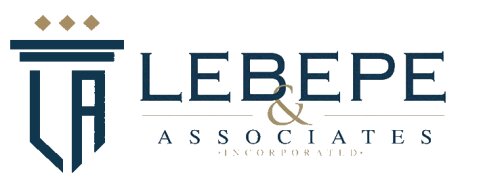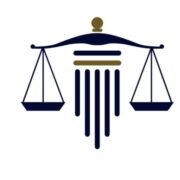Best Nonprofit & Charitable Organizations Lawyers in Polokwane
Share your needs with us, get contacted by law firms.
Free. Takes 2 min.
List of the best lawyers in Polokwane, South Africa
About Nonprofit & Charitable Organizations Law in Polokwane, South Africa
Nonprofit and charitable organizations in Polokwane, South Africa, play an essential role in addressing social, economic, and environmental issues. The legal framework governing these organizations is designed to support their establishment, operation, and sustainability. These regulations provide clarity on the types of organizations recognized under South African law, such as Nonprofit Companies (NPCs), Trusts, and Voluntary Associations. The primary purpose of these entities is not to generate profit but to serve the community's interests. In Polokwane, as part of the Limpopo Province, organizations must adhere to specific legislative requirements, ensuring they operate transparently and efficiently.
Why You May Need a Lawyer
There are several situations where legal advice may be crucial for those involved with Nonprofit and Charitable Organizations in Polokwane:
- Establishing a New Organization: Navigating the registration process for setting up a nonprofit entity, including deciding the appropriate type of structure (NPC, Trust, or Voluntary Association).
- Compliance and Governance: Ensuring the organization adheres to legislative requirements, governance practices, and annual reporting regulations.
- Tax Exemptions: Applying for tax exemption status with the South African Revenue Service (SARS) and understanding the implications.
- Drafting Legal Documents: Creating and reviewing constitutions, trust deeds, and other foundational documents.
- Employment and Volunteer Agreements: Ensuring contracts comply with labor laws and protect the organization’s interests.
- Disputes and Litigation: Addressing conflicts within the organization or with external parties legally and effectively.
Local Laws Overview
Nonprofit organizations in Polokwane must comply with several key pieces of legislation, including:
- Nonprofit Organisations Act 71 of 1997: This act provides the framework for the registration and operation of nonprofit organizations, ensuring accountability and transparency.
- Companies Act 71 of 2008: Governs Nonprofit Companies (NPCs), establishing guidelines for their incorporation and management.
- Income Tax Act 58 of 1962: Addresses the requirements for tax exemptions, including criteria for Public Benefit Organizations (PBOs).
- Trust Property Control Act 57 of 1988: Governs the operation of trusts, a common structure for charitable organizations.
Frequently Asked Questions
What is the difference between a Nonprofit Company and a Trust?
A Nonprofit Company (NPC) is a company incorporated to fulfill public benefit purposes, governed by directors. A trust, however, is managed by trustees who operate according to a trust deed. NPCs often have stricter reporting requirements compared to trusts.
Do I need to register my nonprofit with the government?
Yes, registration with the Department of Social Development as a Nonprofit Organisation (NPO) offers legal recognition and potential tax benefits.
How do I apply for tax-exempt status?
Organizations must apply to the South African Revenue Service (SARS) to be classified as a Public Benefit Organisation (PBO) which then allows for tax exemption.
Can nonprofits engage in commercial activities?
Yes, but commercial activities should align with the nonprofit's goals and any profits generated must be used to further its mission, not distributed to stakeholders.
What are the annual reporting requirements?
NPOs must submit annual reports to the Department of Social Development and financial statements to SARS, showcasing operations and financial dealings.
How can a nonprofit protect its intellectual property?
Nonprofits can register trademarks, copyrights, and patents, protecting the organization's brand, publications, and inventions.
Are volunteers covered by labor laws?
Volunteers are not employees and thus are not covered by labor laws, but it is important to have a volunteer agreement that outlines roles and responsibilities.
What are Public Benefit Activities (PBAs)?
PBAs are activities listed under the Ninth Schedule of the Income Tax Act, allowing organizations conducting these activities to qualify for tax exemptions as PBOs.
What governance structure is recommended for nonprofits?
It is advisable to have a clear governance structure including a board or committee responsible for strategic direction and oversight of operations.
Can nonprofits receive donations from overseas?
Yes, nonprofits can accept foreign donations, but they must comply with the relevant Exchange Control Regulations and report such income to SARS.
Additional Resources
For further support, consider exploring these resources:
- Department of Social Development: Provides guidance and resources for the registration and operation of NPOs.
- South African Revenue Service (SARS): Offers information on tax obligations and exemptions for nonprofits.
- National Development Agency: Supports development initiatives undertaken by local nonprofits and civic organizations.
- Southern Africa Institute of Fundraising: Offers training and resources for effective fundraising practices within the non-profit sector.
Next Steps
If you require legal assistance, it is advisable to consult a lawyer specializing in nonprofit and charitable organization law. You might start by:
- Researching local law firms or legal practitioners in Polokwane with expertise in nonprofit law.
- Reaching out to professional networks and associations for referrals.
- Consulting online legal directories for reviews and contact information of potential legal advisors.
- Preparing necessary documents and questions for your consultation to ensure a productive discussion.
Engaging a skilled lawyer can provide clarity, ensure compliance, and strategically guide the success of your nonprofit initiatives.
Lawzana helps you find the best lawyers and law firms in Polokwane through a curated and pre-screened list of qualified legal professionals. Our platform offers rankings and detailed profiles of attorneys and law firms, allowing you to compare based on practice areas, including Nonprofit & Charitable Organizations, experience, and client feedback.
Each profile includes a description of the firm's areas of practice, client reviews, team members and partners, year of establishment, spoken languages, office locations, contact information, social media presence, and any published articles or resources. Most firms on our platform speak English and are experienced in both local and international legal matters.
Get a quote from top-rated law firms in Polokwane, South Africa — quickly, securely, and without unnecessary hassle.
Disclaimer:
The information provided on this page is for general informational purposes only and does not constitute legal advice. While we strive to ensure the accuracy and relevance of the content, legal information may change over time, and interpretations of the law can vary. You should always consult with a qualified legal professional for advice specific to your situation.
We disclaim all liability for actions taken or not taken based on the content of this page. If you believe any information is incorrect or outdated, please contact us, and we will review and update it where appropriate.













